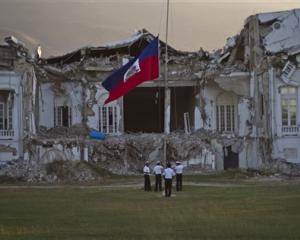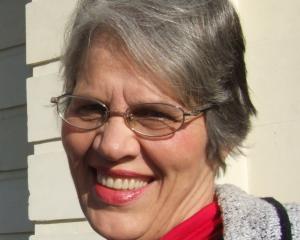
Now he's guiding a Haitian girl to waiting doctors. Now he's lobbying the chief of U.N. peacekeeping operations to provide better security for the camp's 45,000 people. And now he's talking to the press.
"These people are going to have nowhere to go, by and large, in the rainy season," the Oscar-winning actor told The Associated Press. "The efforts that we've seen ... have been extraordinary - down the line. But this is an impossible kind of situation."
The 49-year-old actor came to Haiti about a week after the January 12 quake killed a government-estimated 230,000 people and made 1.3 million homeless. He's left just a a few times since - mostly for Haiti-related meetings, he said, and to present the Oscar for best actress - and doesn't plan to leave again until mid-April.
His blue-shirted workers with the newly formed Jenkins-Penn Haiti Relief Organization provide medical care, water filters and food. On Sunday, they opened a health clinic for mothers and victims of a growing sexual assault epidemic.
"As long as this camp is here, we'll stay here. When this camp's not here anymore then we'll have to be where we are accessible to people," Penn said.
The ridge where the group is based is a short but taxing walk uphill from an increasingly fetid sprawl of makeshift tarp-and-tent homes. Thousands of families came to the valley golf course in the days after the quake, following the U.S. Army's 82nd Airborne Division and its food distributions onto the steep country club grounds.
The group got a major boost Sunday in a visit by U.N. Secretary-General Ban Ki-moon. He toured the facilities with Penn and actress-turned-aid worker Maria Bello - best known among the thinning crowd of U.S. soldiers for her turn in Coyote Ugly.
Penn had never been to Haiti before - "It was just, you know, I saw ten minutes of news and we started organising," he said. - but after two months he talks like a veteran volunteer.
"I don't think that anybody who hasn't been in places like this really understands what poverty is, and what a real lack of infrastructure is," he said.
But he speaks more freely than most aid workers do, decrying disaster profiteers and corrupt local officials who siphon aid, calling for more floored tents to help families at risk for disease and floods, and warning that recent outbursts of violence in the camp could be signs of rising tension.
When a Haitian reporter walks up and asks him about his personal accomplishments in Haiti, the actor cringes.
"What have I been doing? Well, I've spent the last 20 minutes talking to you."
He turns around, and goes back to work.





